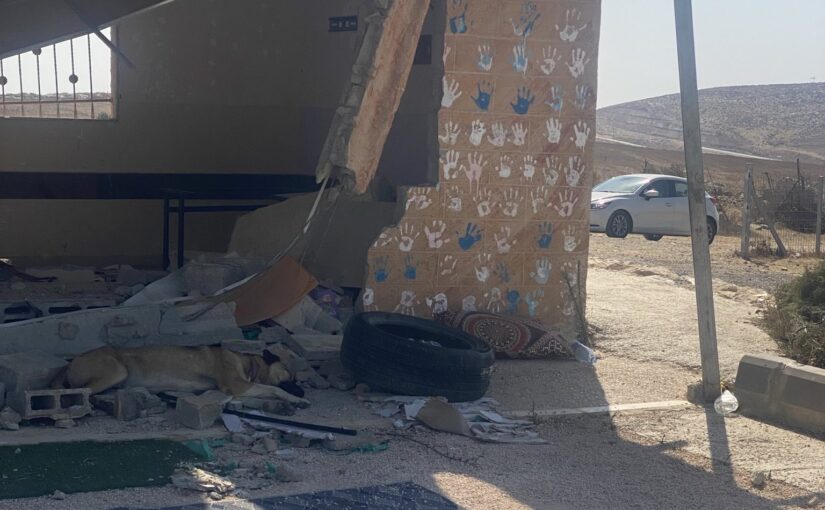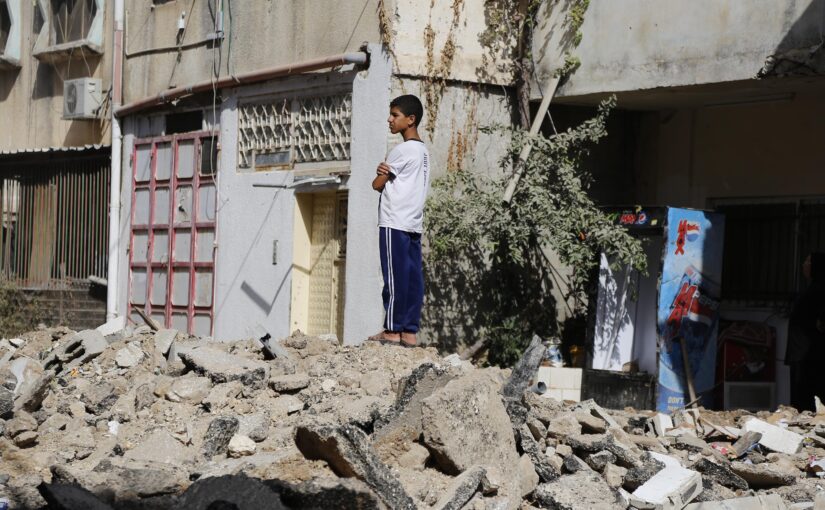-
Zanuta Residents Slammed with Displacement Ultimatum 3 Weeks after Returning to their Lands
20 September 2024 | International Solidarity Movement | Zanuta The recently returned residents of the village of Zanuta (in the southernmost area of the occupied West Bank) have been slammed once again with more colonial practices from the Israeli forces. Three weeks after returning to their land and homes, which had been destroyed by settlers, […]
-
Press Release: ISM Response to US State Dept Criticism of Israeli Investigation into Killing of Ayşenur Eygi
September 18, 2024 Media inquiries: palreports [at] gmail.com Ten days after US citizen Ayşenur Eygi, a human rights activist with the International Solidarity Movement (ISM), was shot and killed by an Israeli soldier while witnessing a protest in the West Bank, the US State Department finally suggested that trusting Israel to investigate itself may not […]
-
Israeli plan to displace residents of Palestinian camps
Palestine – Northern West Bank 18-Sep-2024 By Diana Kwaelid For the past two weeks, the Israeli army has been conducting the largest military operation in the northern West Bank, causing the displacement of dozens of families from the Jenin Camp, Nur Shams Camp, and Tulkarem camp. This comes following Israeli calls to evacuate the camps, […]
Action Alert An Nabi Saleh Apartheid Wall Arrests BDS Bethlehem Bil'in Cast Lead Demonstration Denial of Entry Ethnic Cleansing Farmers Gaza Global Actions Hebron House Demolition International law Israeli Army Jerusalem Live Ammunition Nablus Ni'lin Prisoner Ramallah Rubber-coated steel bullets Settlement Settlers Settler violence Tear-Gas Canister Video


